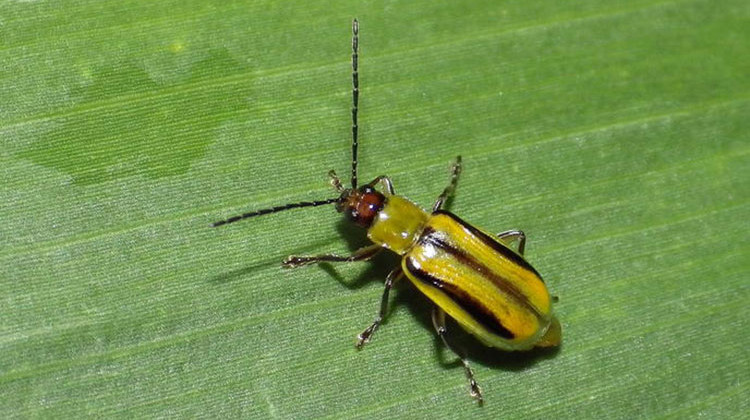A recent study shows rising global temperatures are likely to make pests hungrier, but researchers disagree about what impact that would have on Indiana.
The study in the journal Science shows that warmer temperatures speed up insects’ metabolisms — which makes them eat more. As a result, researchers say the world could lose more than 14 million tons of corn alone by 2050 — one of Indiana’s major crops.
Co-author Scott Merrill works in the University of Vermont’s plant and soil sciences department. He says the sooner the Earth warms by 2 degrees Celsius, the faster we’ll feel these impacts.
“So if there’s anything we can do to reduce the speed which that we reach that two degree mark, everybody is going to win,” says Merrill.
But Purdue University entomology professor Christian Krupke doubts Indiana farmers will have to worry. He says the state hasn’t experienced insect outbreaks in the past five to 10 years.
“We’re not seeing that be born out yet and certainly we have been in a period of warming for that time and for longer,” he says.
READ MORE: Climate Shifts Could Hurt Indiana Corn
Krupke says that’s because the pesticides Indiana farmers use have been very effective. The study in the journal Science suggests growers may use more pesticides in the future, which could harm the environment and public health.
Warmer temperatures can benefit crops as well as insects, Krupke says, though not if it gets too warm to cause stress to the plant.
Indiana Environmental reporting is supported by the Environmental Resilience Institute, an Indiana University Grand Challenge project developing Indiana-specific projections and informed responses to problems of environmental change.
 DONATE
DONATE









 Support WFYI. We can't do it without you.
Support WFYI. We can't do it without you.